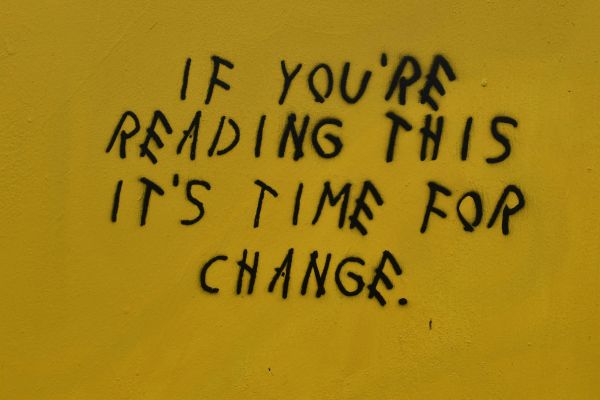How Men Can Avoid Taking Part in Toxic Masculinity
Toxic masculinity: we know it, many have experienced it firsthand, and quite frankly, it totally sucks. After centuries of emphasis on male toughness, the adaptation and glorification of unhealthy habits, and the idea that men are machines built to work hard and dominate, there’s a refreshing new era of sexy, strong, and soft men who feel and display emotion in a healthy, considerate way. Even though we can all agree that “I’ll Make a Man Out of You,” from the 1998 Disney animated classic Mulan, is a banger, we must acknowledge how it perpetuates toxic masculinity and keeps us all from standing in our true, healed power. We’re highlighting how to kick the antiquated Captain Chang-style ego and how men can avoid taking part in toxic masculinity – for the good of us all. From the soft-jock flare of Mr. Taylor Swift, aka Kansas City Chief’s tight-end Travis Kelce, to the androgynous nature of ex-T.S. lover Harry Styles, one thing is clear – toxic masculinity is out, and soft, secure masculinity is in.

Defining Toxic Masculinity
To tackle something as inherent as toxic masculinity, we must first understand it. Per the Oxford Dictionary, toxic masculinity is defined as a set of attitudes and ways of behaving stereotypically associated with or expected of men and is regarded as having a negative impact on society. Toxic masculinity arises from societal pressures for men to fit a pre-determined mold of emphasized masculinity, ultimately taking an already problematic culture to an unnecessary extreme. It’s seen interpersonally, digitally, and beyond – given that toxic masculinity imagery is increasingly accessible through the internet and social media. Just like anyone can say or do anything to your face, people can share or comment anything online. Men are constantly confronted with crippling definitions of what it means to “be a man” and whether they fit society’s buff cookie cutter. As one might imagine, toxic masculinity manifests itself in a variety of ways including, but not limited to:
- Promiscuity
- Self-affirmation
- Social dominance
- Unconditional physical toughness
- Sexual aggression toward women
- Hyper-competitiveness
- Repressed emotion
- Gender-based violence
- Gender-role conformity
- Inability and/or unwillingness to admit vulnerabilities
- Increased prejudice and violence against minority communities
- A delusional sense of entitlement in relationships
And so much more…
In the simplest sense, toxic masculinity is an overemphasis or exaggerated expression of characteristics commonly associated with manliness and masculine energy. For example, those standing in their masculine energy who make it a point to reject weakness and vulnerability to preserve perceived manliness prevent one from living wholly, thereby perpetuating and displaying toxic masculinity behaviors that don’t do anyone any favors. Masculinity is not one-size-fits-all. It is complex, diverse, and holistically influential. Knowing toxic masculinity can be expressed in a multitude of ways, it’s important to understand how to do your part in combating the negativity and stepping into healthy masculinity.
Big Picture Thinking | How do we evolve the concept of healthy masculinity into a societal expectation? Here are four ways men can avoid taking part in toxic masculinity because it’s time to change the narrative, and let’s face it – secure is sexy.
Acknowledge Where You Are
Evaluating your contributions to the problem and your role in encouraging or displaying toxic masculinity will help identify the personal traits you want to evolve into a healthy masculinity practice. The only way to understand the path forward is rooted in understanding where you currently are. This begins with self-examination of your behaviors and taking note of areas that require positive change, then brainstorming how to improve or change the habit, followed by implementing the plan of action. Grabbing a pen and paper and beginning to gather your thoughts in writing is a great place to start.
Pro Tip | Take self-realization one step further with this list of journaling prompts that tackle toxic masculinity and inspire ways to overcome it.
Have Difficult Conversations
It can be intimidating to discuss sensitive topics, especially if one’s natural inclination when discussing emotions of any sort is to immediately hop onto the defense or emotionally shut down. Discussing toxic masculinity and gender biases with people of different gender identities and expressions will give you an idea of how toxic masculine behavior affects society and what role you hold in either affirming or evolving societal constructions around manliness. Questions like “What do ‘masculinity’ and ‘femininity’ mean to you?” and “What does it mean to ‘man up’?” are tough – and might make you feel uncomfortable at first – but genuinely meaningful on this journey. The goal of these discussions should always be to seek understanding and insight that will facilitate positive, personal change. Boys will no longer “be boys,” and that’s up to society, especially men, to model.
Pro Tip | Inspire the next generation of secure, soft men by digging into this list of introductory discussion questions regarding toxic masculinity with your loved ones, especially your sons and brothers.

Break Male Mental Health Stigmas
Stigma involves assigning people with certain traits inaccurate identities or labels that often stem from a lack of understanding or internal fear. Inaccurate and misleading representations of any group of people contribute to the perpetuation of stigma and can have harmful effects on mental health. Breaking a negative stigma is always trending, especially in the context of mental health issues. It’s more common now for people to seek mental healthcare from their healthcare providers than it was even just a few years ago – largely due to society’s mostly unified focus on destigmatizing mental health issues and treatment. For men, traditional social expectations often include concealing vulnerability and emotion, hindering the development of mental health and wellness practices. Many men feel compelled to conform to traditional masculine gender roles, resulting in a sense of emotional entrapment when it comes to showing weakness or vulnerability, especially regarding mental health. According to The National Institute of Mental Health, around 20 percent of American adults experienced mental illness in 2019. Of those adults, nearly 50 percent of women with mental illness received mental health care, but only around 37 percent of men did. And according to the Anxiety & Depression Association of America more than six million men suffer from depression per year, but male depression often goes undiagnosed.
Toxic masculinity isn’t designed to allow males to fully express themselves or their emotional needs because of how society will perceive an emotional display of vulnerability, and society isn’t set up to encourage men to connect with their emotions. The goal is to change the perception of men who fully take care of themselves and prioritize a gentler, healthier, and more intentional way of living. Be part of the solution and break the stigma by seeking mental health resources as needed and do your part to call out other problematic behaviors and attitudes.
Pro Tip | Find your new mental healthcare professional bestie through this platform from Psychology Today that allows you to research therapists in the U.S. by City/State/Zip.
Lead By Example and Step into Healthy Masculinity
Be constructive, communicate kindly, celebrate diversity, and bounce back after failure – all of these are important aspects of leading by example. If you see other males displaying toxic masculinity, stop it, call it out, and provide an empathetic space to develop a stronger understanding of the implications of toxic masculinity. Embody kindness and inclusivity by honoring gender neutrality and different forms of gender expression by leading a discussion that’s inclusive, supportive, and healthy for all. Stop placating the effects of toxic masculinity by touting our least favorite phrases like, “Boys will be boys” and “He’s only mean to you because he likes you.” No matter what, encouraging vulnerability, inclusion, and understanding is important for all people, even men.
Pro Tip | Remove these harmful phrases from your vocabulary and speak up when you hear someone else say something equally toxic.

Like many social issues, toxic masculinity has some incredibly deep roots that will take time, effort, and so much patience to combat. With a little courage, kindness, compassion, and effort, we can make the world an emotionally safe space for everyone – men included. Ditch the dusty, crusty patriarchy and step into your Travis Kelce soft boy swag – we dare you.
****
No matter where your starting place is or what has happened in the past, we hope you feel empowered and knowledgeable to combat toxic masculinity.
